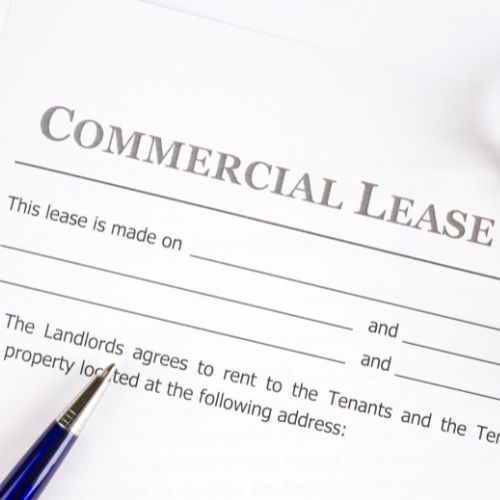With the United Kingdom’s withdrawal from the European Union looming on the horizon, surrounded by a storm of disagreement and the risk of a ‘No Deal’ Brexit, uncertainty remains a constant for businesses located in or trading out of Northern Ireland. Whilst the Court held in Canary Wharf Group –v- European Medicines Agency that a commercial lease is not ‘frustrated’ by Brexit, there is no doubt many commercial relationships including those between a Landlord and Tenant may be affected by Brexit.
Presently, the market norm for a commercial lease is for a term of between 5 and 10 years. This is a significant undertaking in today’s uncertain economic climate irrespective of whether the Tenant’s business is a new venture or long established operation. During the term, a Tenant may find themselves in the position where they wish to extricate themselves from their Lease particularly if the post-Brexit economic climate and trading landscape changes. A break clause can provide a valuable solution which allows a Tenant or Landlord (or both) to terminate the Lease at a future date and should be considered by the parties at the outset of negotiations.
Break clauses usually contain pre-conditions which the breaking party must comply with in order for the break right to be exercisable. Such conditions will be a matter for the parties to agree but generally include the payment of rents reserved (including any service charges or insurance rent), compliance by the breaking party with their obligations contained in the Lease and the delivery of vacant possession.
A Landlord is contractually obliged to accept the Tenant’s exercise of a break clause when all conditionality attached to the break clause has been complied with. However, Tenants should note that even a small deviation from the conditions imposed in a break clause could render a break invalid. It is also vitally important that a party seeking to exercise a break right complies with any time limits imposed as time is deemed to be ‘of the essence’. Failing to serve the correct notice on the Landlord within the prescribed timeframe will result in the loss of the break right (United Scientific Holding Ltd. v Burnley Borough Council [1978] AC 904).
Whilst the inclusion of a Tenant’s break clause can be valuable to the Tenant, from a Landlord’s perspective there may be less value in a Landlord’s break clause. If a Lease falls within the protective ambit of the Business Tenancies (NI) Order 1996 (“the BTO”), then it can only be determined if the Landlord establishes one of the grounds for opposing a tenancy set out in Article 12 of the BTO. Such grounds range from a Tenant’s failure to comply with their obligations in respect of repair to the Landlord requiring possession to demolish the premises or carry out substantial works to them. When serving notice of their intention to determine the lease, the BTO requires a Landlord to stipulate the ground(s) upon which they are opposing the continuation of the tenancy. Whilst there are limited grounds for opposing the continuation of a tenancy, there may still be value in a Landlord’s break clause particularly if redevelopment opportunities arise or they require the Premises to operate their business out of.
On a more practical note, a party contemplating the exercise of a break right should allow sufficient time to prepare for serving notice. This will give the breaking party an opportunity to ensure the correct notice is served on the correct party and within the correct time limits, review the conditionality attached to the exercise of a break right and assess their compliance with the conditions of the break clause.

